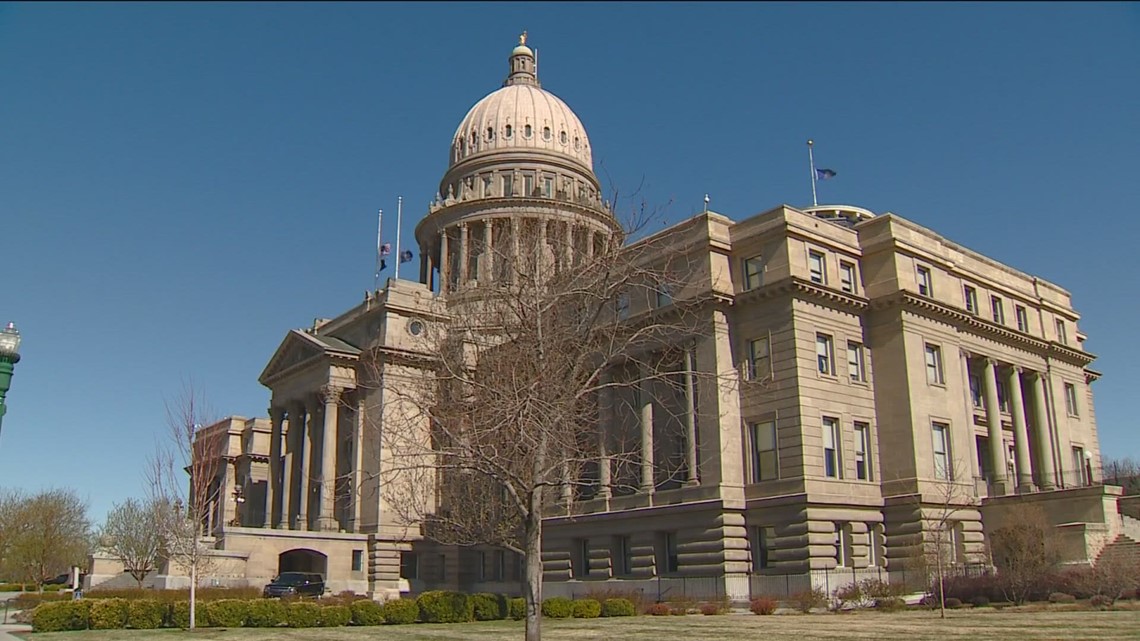
Val Jones and her family moved in response to two laws from the 2023 legislative session. Her child is a 13-year-old transgender girl.
BOISE, Idaho — The names of some people in the story are altered to protect their identity in the event of unwanted repercussions.
Jane Jones walked the halls of the West Ada School District for the better part of a decade.
A competitive dancer. A swimmer. A teenager. She kept her secret so tight, even Jane forgot it at times.
“She doesn’t even identify as transgender,” Jane’s mother, Val, said. “She identifies as a female. As a girl.”
Jane showed signs young as two years old, according to Val. And it was clear by the time Jane could speak and communicate her thoughts clearly. Jane wanted to be a girl.
The public presentation as a girl started early – Kindergarten.
“And the school staff supported us,” Val said. “Anytime we would tell anybody, they did not know.”
The status of being a transgender minor in Idaho has been underwater by the state legislature for years. Most notably, state lawmakers passed Senate Bill 1100 (S1100) and House Bill 71 (H71) in the 2023 Legislative Session. In tandem, public bathrooms – including schools – are to be separated strictly by biological sex at birth; gender transition medication and surgeries are banned for minors.
Jane no longer felt comfortable in her own home state and her parents – again – were listening.
“We did. We moved in July,” Val said. “I’ve been in the service. My husband is in the service. We have served our country for almost 50 years combined. And this is what we must deal with? Leaving Idaho to save our family.”
A Supreme Court of the United States (SCOTUS) decision narrowed an injunction on H71 Monday to only pause the enforcement of the law on plaintiffs in Labrador v. Poe until the court case is resolved. Val’s family, and dozens of others, have no protections to continue their gender transitions treatments in the Gem State. In Jane’s case, she’s taking puberty blockers.
But even before that, the bathroom bill – S1100 – already stirred questions and potential up problems. That bill, too, is tied up in court with an injunction.
“None of her friends ever knew [Jane was transgender],” Val said. “It would be terrifying to any male or boy in a school restroom to have the long blonde hair girl walk into the bathroom. Devastating.”
St. Luke’s – the largest hospital system and private employer in the state – currently treats 65 minors for gender transition, according to a hospital spokesperson. St. Luke’s will still provide mental health treatments and resources; however, they must make changes to comply with the law.
Though, the hospital system never provided gender transition surgeries for minors.
“Now that the ban on providing most gender-affirming care is in effect, any providers in the state who treat adolescents for gender-affirming care will need to refer those patients to continued care out of state,” the St. Luke’s spokesperson said. “St. Luke’s providers are here to provide counseling and support to impacted adolescents and their families in alignment with the new Idaho law.”
Rep. Bruce Skaug (R-Nampa) sponsored H71. He dubbed his legislation the Vulnerable Child Protection Act.
“There is a genuine concern gender dysphoric children get treatment,” Skaug said on the house floor in 2023. “It’s just that we want the traditional treatment of talk therapy and being allowed to let their bodies take the natural course.”
Rep. Skaug supported SCOTUS and their Monday decision to narrow the injunction and allow Idaho general enforcement of H71.
“I am confident, that in the end, the courts will uphold the H71 law, which protects all Idaho children from procedures which permanently sterilize and mutilate their bodies,” Rep. Skaug told KTVB.
Attorney General Raul Labrador (R-Idaho) is defending H71 in that court case. Labrador too praised SCOTUS and their decision amid ongoing litigation.
“I’ve witnessed firsthand the devastating consequences of drugs and procedures used on children with gender dysphoria. And it’s a preventable tragedy,” Labrador said. “The state has a duty to protect and support all children, and that’s why I’m proud to defend Idaho’s law that ensures children are not subjected to these life-altering drugs and procedures. Those suffering from gender dysphoria deserve love, support, and medical care rooted in biological reality. Denying the basic truth that boys and girls are biologically different hurts our kids. No one has the right to harm children, and I’m grateful that we, as the state, have the power—and duty—to protect them.”
Val pushed back on the statement and rejected the idea her child is suffering for the mere status of being transgender. Val attributes Jane’s suffering to the new laws that seek to regulate her life.
The new laws that pushed her, and her family, out of her home state.
“It’s heartbreaking. It was a great state to live in. It has a lot to offer,” Val said. “There are wonderful people in Idaho. There are horrible laws.”



